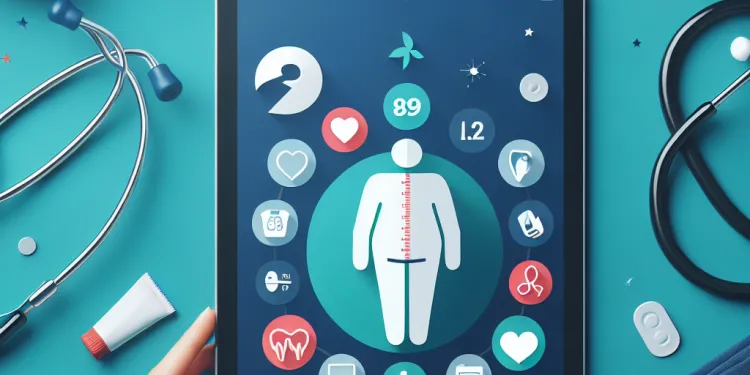
Find Help
More Items From Ergsy search
-
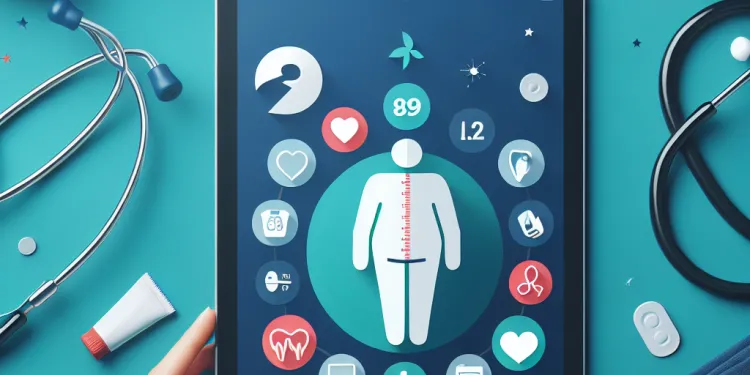
What treatments are available for obesity?
Relevance: 100%
-

Obesity
Relevance: 84%
-

What causes obesity?
Relevance: 71%
-

Can genetics influence obesity?
Relevance: 70%
-

How is obesity measured?
Relevance: 69%
-

How can obesity be prevented?
Relevance: 66%
-

What is the impact of obesity on mental health?
Relevance: 66%
-

What are the current statistics on childhood obesity in the UK?
Relevance: 65%
-

What health risks are associated with obesity?
Relevance: 65%
-

Is childhood obesity a concern in the United Kingdom?
Relevance: 65%
-
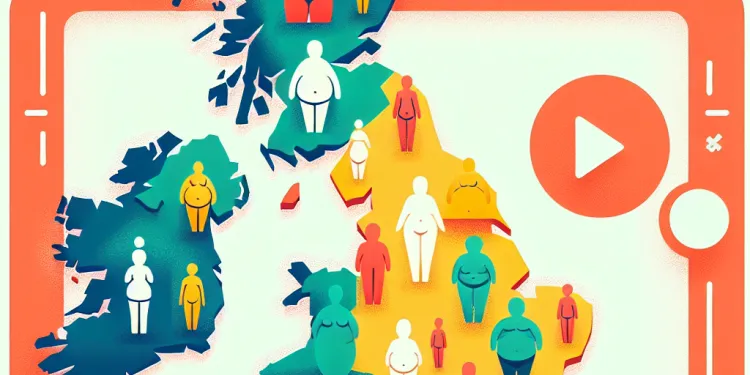
Is obesity more prevalent in certain regions of the UK?
Relevance: 64%
-

Is childhood obesity a concern in the United Kingdom?
Relevance: 64%
-

Do weight loss jabs work for all types of obesity?
Relevance: 64%
-

Are there any societal factors that contribute to obesity?
Relevance: 63%
-

How does obesity affect bowel cancer rates?
Relevance: 63%
-

What role do sugary drinks play in obesity?
Relevance: 60%
-

How important is physical activity in preventing obesity?
Relevance: 59%
-

What role does diet play in managing obesity?
Relevance: 58%
-

Study Finds Alarming Increase in Childhood Obesity Rates Post-Pandemic
Relevance: 56%
-

What impact has the sugar tax had on obesity rates?
Relevance: 56%
-
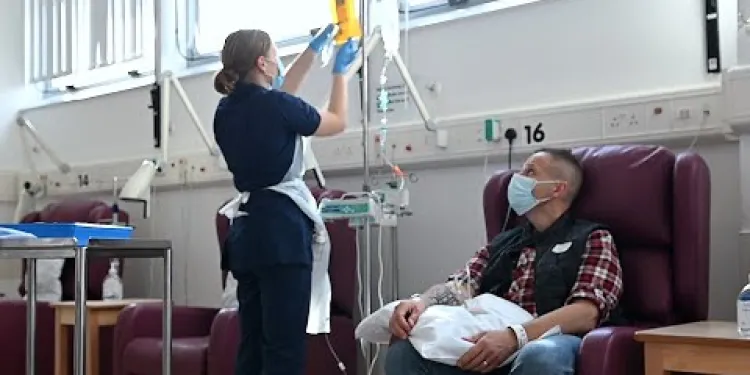
Having chemotherapy and other treatments in the Day Treatment Unit
Relevance: 38%
-

Is there a treatment for measles?
Relevance: 37%
-
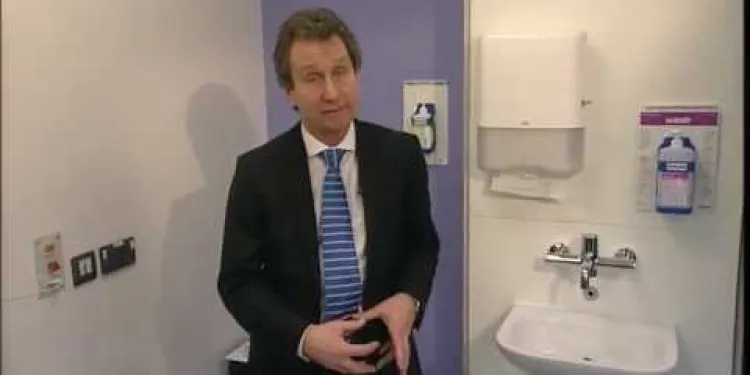
Hernias and their Treatments - A guide for patients
Relevance: 37%
-

Is there a treatment for measles?
Relevance: 37%
-

Are chiropractic treatments safe?
Relevance: 37%
-

Is Botox treatment expensive?
Relevance: 37%
-
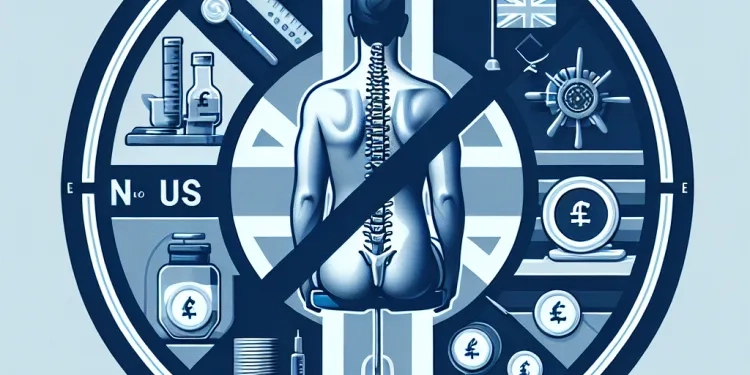
Are chiropractic treatments painful?
Relevance: 37%
-
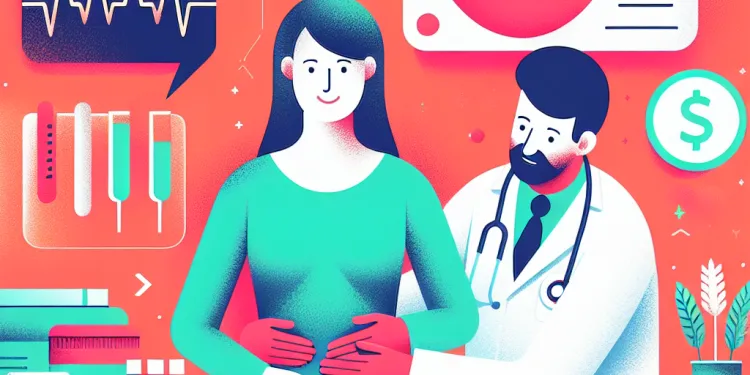
What is the treatment for appendicitis?
Relevance: 36%
-
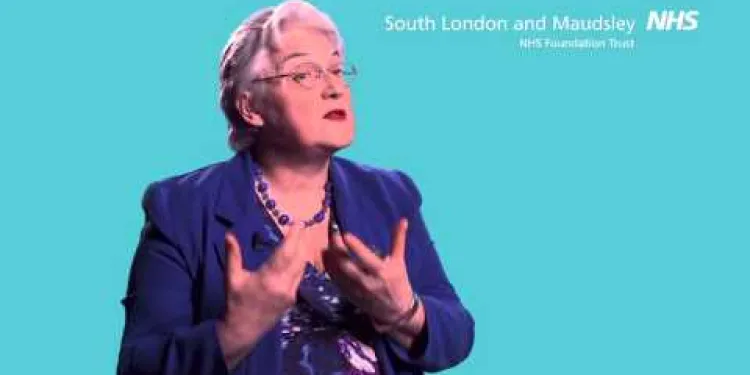
Eating disorders: treatment
Relevance: 36%
-

Is Paillon treatment a form of chemotherapy?
Relevance: 35%
-

What is Paillon treatment for cancer?
Relevance: 35%
-

Who developed the Paillon treatment?
Relevance: 35%
-

How is Paillon treatment administered?
Relevance: 35%
-
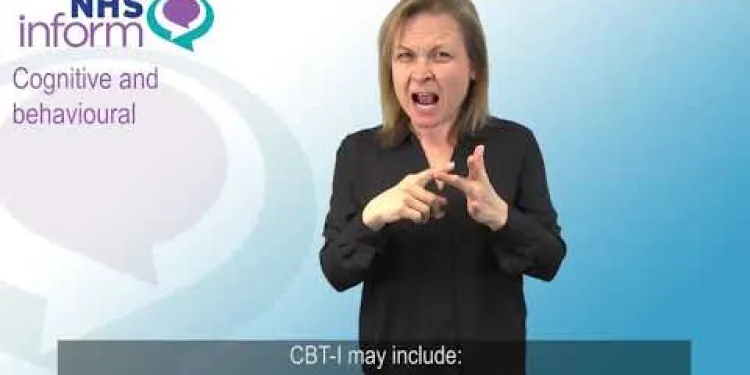
BSL - Treatments for insomnia
Relevance: 35%
-

Is Paillon treatment FDA approved?
Relevance: 35%
-

Is a prescription required for Paillon treatment?
Relevance: 35%
-

What condition does Wegovy treat?
Relevance: 35%
-

Fertility treatments on the up, but not via the NHS
Relevance: 35%
-

What are topical treatments for psoriasis?
Relevance: 35%
-

What treatments are available for eczema?
Relevance: 35%
Treatments Available for Obesity in the United Kingdom
Obesity is a common health condition in the UK, characterised by an excessive amount of body fat that may impair health. Treating obesity is important for reducing associated health risks and improving quality of life. Here, we explore the various treatments available for obesity in the UK, ranging from lifestyle changes to medical interventions.
Lifestyle Modifications
One of the first-line treatments for obesity involves supporting patients to make lifestyle changes. This typically includes adopting a healthier diet and increasing physical activity. NHS services offer dietary and exercise guidance, promoting a calorie-controlled diet rich in fruits, vegetables, and whole grains while reducing the intake of sugars and fats. Regular physical activity, such as walking, swimming, or cycling, is encouraged to help burn calories and improve overall fitness. These changes require long-term commitment but are crucial for sustainable weight loss.
Behavioural Therapy
Behavioural therapy can be effective in helping individuals with obesity to change their eating and lifestyle habits. This approach often involves working with a therapist who helps patients identify triggers for unhealthy eating patterns and provides strategies to change behaviours that contribute to weight gain. Techniques such as cognitive-behavioral therapy (CBT) are used to support patients in developing healthier habits and maintaining weight loss over time.
Medications
For some individuals, medications may be prescribed to assist with weight loss. Orlistat is one of the most commonly prescribed medications in the UK for weight management. It works by reducing the amount of fat absorbed by the body. However, it should be used in conjunction with lifestyle changes and is usually recommended for individuals with a BMI over 30, or over 28 if there are other weight-related health conditions. Patients need regular monitoring while taking these medications to ensure safety and effectiveness.
Surgical Interventions
In cases where lifestyle changes and medications have not been successful, and the individual's health is at serious risk due to obesity, surgical options may be considered. Bariatric surgery, including procedures like gastric band, gastric bypass, and sleeve gastrectomy, is available on the NHS for eligible candidates. These surgeries alter the digestive system to limit food intake or nutrient absorption, contributing to significant weight loss. Surgery is often considered a last resort and involves comprehensive pre-operative assessments and post-surgery lifestyle management.
Support and Follow-up Care
Successful treatment of obesity often requires ongoing support and follow-up care. The NHS and private healthcare providers offer various programs, including regular check-ins and support groups, to help individuals maintain their weight loss and address any challenges. Continuous care plays a vital role in sustaining the lifestyle changes necessary to prevent weight regain and improve health outcomes.
Treatments Available for Obesity in the United Kingdom
Obesity is a growing health concern in the United Kingdom, affecting both adults and children. It significantly increases the risk of chronic illnesses such as heart disease, diabetes, and some cancers. The treatment of obesity is multifaceted, involving lifestyle changes, medications, and in some cases, surgical interventions. Here, we explore the various options available for managing obesity effectively.
Lifestyle Changes
The cornerstone of obesity treatment is lifestyle modification, focusing on diet and exercise. The NHS advises a balanced diet, rich in fruits, vegetables, whole grains, and lean proteins while reducing sugar and saturated fats. Regular physical activity with a mix of aerobic and strength-training exercises is crucial to burn calories and improve overall health. Behavioral therapies can help individuals develop healthier eating habits and tackle the psychological aspects of obesity.
Medications
When diet and exercise alone are insufficient, medications may be prescribed. In the UK, orlistat is a common medication that works by reducing fat absorption, promoting weight loss. It's often recommended alongside lifestyle changes for a more significant impact. However, medications are not a standalone solution and should be part of a comprehensive treatment plan under medical guidance.
Surgical Options
For severe cases, bariatric surgery might be considered. Procedures such as gastric band or bypass can lead to significant weight loss by reducing the amount of food the stomach can hold or altering the digestive process. Surgery is generally recommended when other treatments have failed, or when an individual's health is at serious risk due to obesity. The availability and suitability of these procedures are assessed on a case-by-case basis by healthcare providers.
Support and Monitoring
Professional support is crucial in tackling obesity effectively. The NHS provides access to dietitians, psychologists, and weight management programs to offer continuous support. Regular monitoring of weight, lifestyle, and health conditions is essential to adjust treatment plans and achieve long-term success. Community support groups also play a vital role in providing encouragement and shared experiences.
Overall, treating obesity requires a comprehensive and individualized approach. By combining lifestyle modifications with medical treatments, individuals can achieve sustainable weight loss and improve their health outcomes.
Treatments Available for Obesity in the United Kingdom
Obesity means having too much body fat, and it can be bad for your health. In the UK, many people have obesity. Treating obesity is very important because it helps people stay healthy and feel better. This guide talks about different ways to treat obesity in the UK. These ways include changing how you live and taking medicine.
Lifestyle Changes
The first way to help with obesity is to change your lifestyle. This means eating better and moving more. The NHS can help by giving advice on food and exercise. They suggest eating fruits, vegetables, and whole grains, and eating less sugar and fat. It's also good to do regular exercise like walking, swimming, or biking. These changes need to be part of your life for a long time to help you lose weight.
Talking to a Therapist
Talking to a therapist can help you change how you eat and live. A therapist can help you understand why you eat too much and help you find ways to eat less. Therapists use methods like cognitive-behavioral therapy (CBT) to help you make better choices and keep the weight off.
Medicines
Sometimes, doctors give medicines to help with weight loss. One common medicine is Orlistat. It helps your body absorb less fat from food. People who have a BMI over 30, or over 28 with other health problems, might use this medicine. You should talk to your doctor often when taking any medicine to make sure it is working and safe.
Surgery
If changing your lifestyle and medicine do not work, surgery might be an option. Surgery is for people who are very overweight and have health risks because of it. Types of surgery include gastric band, gastric bypass, and sleeve gastrectomy. These surgeries change your stomach and how your body handles food. Surgery is a serious step and doctors will check if it's right for you.
Help and Care Afterwards
After starting treatment for obesity, it's important to have help all the time. The NHS and other healthcare groups have programs and meetings to help you keep the weight off and stay healthy. Ongoing care is important to keep up the new habits and prevent weight gain again.
Treatments for Obesity in the United Kingdom
Obesity is when someone is very overweight. It is a health problem in the United Kingdom that affects adults and children. Being obese can make illnesses like heart disease, diabetes, and some cancers more likely. Treating obesity means making changes in your life, taking medicine, and sometimes having surgery. Let’s look at the different ways to help with obesity.
Changes in Lifestyle
The most important way to treat obesity is by changing how you live. This means eating a healthy diet and getting exercise. The NHS says to eat lots of fruits, vegetables, whole grains, and lean meat, and to eat less sugar and fats. Doing regular exercise helps burn calories and makes you healthier. Exercise should include things like walking or running and also activities that build muscle. Talking to someone who can help with eating habits and feelings about food can also be important.
Medicines
If eating healthy and exercising are not enough, you might get medicine from a doctor. In the UK, a medicine called orlistat can help. It stops some fat from being absorbed in your body and helps you lose weight. You should still eat healthy and exercise while taking medicine. Medicines should be used with a doctor’s advice and as part of a bigger plan to lose weight.
Options for Surgery
In serious cases, surgery might be needed. This could include operations like a gastric band or bypass that make the stomach smaller or change how you digest food. Surgery is usually for people who have not been able to lose weight with other treatments or whose health is in danger because of obesity. Deciding on surgery depends on each person’s health, and doctors help decide if it is a good idea.
Getting Support and Checking Progress
Having help from professionals is really important to deal with obesity. The NHS can provide help from dietitians, psychologists, and special weight programs. Checking weight, lifestyle changes, and health regularly is important to make sure the treatment is working. Support groups in the community can also give encouragement and allow people to share experiences.
Overall, treating obesity needs different approaches for each person. By making lifestyle changes and using medical treatments, people can lose weight in a healthy way and feel better.
Frequently Asked Questions
What is the first step in treating obesity?
The first step in treating obesity is often lifestyle modification, which includes adopting a healthy diet and increasing physical activity.
Are there any dietary plans recommended for obesity treatment?
Yes, a balanced diet focusing on whole foods, such as the Mediterranean diet, which includes fruits, vegetables, lean proteins, and whole grains, is often recommended for obesity treatment.
How important is physical activity in managing obesity?
Physical activity is crucial in managing obesity as it helps burn calories, maintain weight loss, and improve overall health.
Are there any medications available for obesity treatment in the UK?
Yes, medications like Orlistat may be prescribed to help with weight loss by reducing the amount of fat absorbed from diet.
What role does behavior therapy play in treating obesity?
Behavior therapy can help individuals change their eating and physical activity habits, set realistic goals, and develop coping strategies for weight management.
Is bariatric surgery an option for treating obesity?
Yes, bariatric surgery is an option for individuals with severe obesity who have not been successful with other treatments and meet certain medical criteria.
What types of bariatric surgery are available?
Common types of bariatric surgery include gastric bypass, sleeve gastrectomy, and adjustable gastric banding.
Can counselling help with obesity treatment?
Yes, counselling and support groups can provide emotional support and help individuals overcome mental barriers associated with weight loss.
How effective is weight loss surgery in treating obesity?
Weight loss surgery has been shown to be very effective for significant long-term weight loss and can lead to improvements in obesity-related conditions.
Is it possible to treat obesity without medication or surgery?
Yes, many people are able to manage obesity through lifestyle changes alone, including diet, exercise, and behavioral changes.
Are there any NHS programs available for obesity treatment?
The NHS offers weight management services that include lifestyle programmes, behavioural interventions, and, in some cases, access to medications and surgery.
What risks are associated with obesity treatments?
Risks vary depending on the treatment, but can include potential side effects from medications, complications from surgery, and the psychological impact of lifestyle changes.
How can health professionals support individuals in treating obesity?
Health professionals can provide tailored advice, monitor progress, and offer support through regular consultations and referrals to specialists as needed.
Are there digital tools available to help manage weight?
Yes, various apps and online resources can assist with tracking food intake, physical activity, and providing motivational support.
What are the long-term benefits of successful obesity treatment?
The long-term benefits include reduced risk of chronic diseases like diabetes and heart disease, improved mobility and quality of life, and increased life expectancy.
What is the first step to help with being very overweight?
The first step to help with being very overweight is to change what you eat and to move your body more. This means eating healthy food and doing more exercise.
Are there any food plans to help treat being very overweight?
Sometimes people need help with eating to get to a healthy weight.
Here are some ideas that might help:
- Eat more fruits and vegetables.
- Eat less sugary and fatty foods.
- Try to drink more water instead of soda.
- Eat smaller meals throughout the day.
- Ask a doctor or a dietitian for advice.
Using a picture chart or app can help you keep track of what you eat.
Remember to move your body every day, like walking or playing outside. This can help too!
Yes, eating healthy foods can help with being overweight. A diet called the Mediterranean diet is very good. It has fruits, vegetables, lean meats, and whole grains. These foods help you stay healthy.
Why is moving your body important to help with being overweight?
Moving your body is very important if you want to lose weight. It helps you use up energy, keep the weight off, and feel better.
Can you take medicine to help with being very overweight in the UK?
Yes, there are some medicines that doctors can give to help people who are very overweight. The doctor will talk to you about these medicines and how they work.
If you need help reading this, you can ask someone to read it with you or use a tool that reads the words out loud.
Yes, some medicines like Orlistat can help you lose weight. They do this by stopping some of the fat in your food from being taken in by your body.
If you need help understanding this, try asking someone to read it with you.
How can behavior therapy help people who are overweight?
Behavior therapy can help people change habits. It teaches new ways to think and act. This can help with eating better and moving more. It supports making small changes, one step at a time.
Helpful tools are:
- Keeping a food diary to track what you eat.
- Setting small, easy goals to reach.
- Getting praise for good choices.
- Talking to a therapist to get support.
Behavior therapy helps people change how they eat and exercise. It helps set easy goals and find ways to handle their weight better.
Can an operation help with being very overweight?
Yes, people who are very overweight can have a special surgery to help them. This is called bariatric surgery. It is for those who could not lose weight with other methods and meet certain health rules.
Tools to help you understand: You can use a dictionary to look up new words. You can also ask a grown-up if you have questions.
What kinds of weight loss surgery can you have?
Bariatric surgery helps people lose weight. There are different types you can choose from. Here are some:
- Gastric Bypass: The doctor makes your stomach smaller.
- Sleeve Gastrectomy: The doctor removes a part of your stomach.
- Adjustable Gastric Band: The doctor puts a band around your stomach.
- Biliopancreatic Diversion: The doctor changes how your stomach connects to your intestines.
You can talk to your doctor to learn more and see which one might be best for you.
If reading is hard, you can:
- Ask someone to read it out loud to you.
- Use text-to-speech tools on your computer or phone.
- Take breaks if it feels like too much information.
There are different kinds of weight loss surgeries. Some common ones are gastric bypass, sleeve gastrectomy, and adjustable gastric banding.
Can talking to someone help with losing weight?
Talking to a counselor or therapist can help you if you are trying to lose weight. They can teach you new ways to think about food and exercise. They can also help you feel better about yourself.
Here are some things that might help:
- Speak to a counselor: They listen and give good advice.
- Join a support group: Meet people who are also trying to lose weight. Share your feelings and get support.
- Use helpful apps: Find apps that track food and exercise to keep you on track.
Yes, talking to a counsellor or joining a support group can help. They listen to how you feel and help you with your worries about losing weight.
Does weight loss surgery help people lose weight?
Weight loss surgery can help people lose a lot of weight for a long time. It can also make health problems caused by being overweight better.
Can you lose weight without medicine or surgery?
Yes, lots of people can manage their weight by making changes in their life. This includes eating healthy food, moving your body with exercise, and changing some habits.
Can the NHS help if I am very overweight?
The NHS can help you with your weight. They have different ways to support you:
- They can teach you about healthy living.
- They can help change the way you do things to stay healthy.
- They can sometimes give medicines to help.
- They might also suggest surgery to help.
What are the dangers of treatments for being very overweight?
Risks can be different for each treatment. Some risks are:
- Medicines might cause side effects.
- Surgery can have problems.
- Changing your lifestyle might make you feel different.
How can health helpers help people who are very overweight?
Health helpers (like doctors and nurses) can do many things to help people who are very overweight. Here are some easy ideas:
1. Talk and Listen: Health helpers can talk with the person and listen to their feelings and needs.
2. Make a Good Plan: They can help make a simple plan to eat better and move more.
3. Support and Encourage: They can cheer the person on and give help when they feel stuck.
4. Use Helpful Tools: They can use tools like pictures, simple charts, or apps to make things easier to understand.
5. Be Patient: Health helpers know it takes time, and they are patient and kind.
Doctors and nurses can give you special advice just for you. They watch how you are doing and help you often. They can also send you to other experts if you need extra help.
Can computers or phones help with weight?
Yes, there are apps and tools on computers and phones that can help with weight. Here are some ways they can help:
- Track your food: Some apps help you write down what you eat. You can see how healthy your meals are.
- Exercise help: There are apps that show you exercises to stay fit and healthy.
- Set goals: You can set goals like walking more or eating more fruits and vegetables.
- Reminders: Apps can remind you to drink water or go for a walk.
These tools can make it easier to stay healthy. Ask an adult to help you choose the best app for you.
Yes, there are different apps and online tools that can help you keep track of what you eat, how much exercise you do, and give you encouragement.
What are the good things that happen after treating obesity?
Doing healthy things for a long time can help you in many ways. It can make it less likely for you to get sick with things like heart problems or diabetes. You might find it easier to move around and feel better in your daily life. Living healthy can also help you live longer.
Useful Links
This website offers general information and is not a substitute for professional advice.
Always seek guidance from qualified professionals.
If you have any medical concerns or need urgent help, contact a healthcare professional or emergency services immediately.
Some of this content was generated with AI assistance. We’ve done our best to keep it accurate, helpful, and human-friendly.
- Ergsy carfully checks the information in the videos we provide here.
- Videos shown by Youtube after a video has completed, have NOT been reviewed by ERGSY.
- To view, click the arrow in centre of video.
- Most of the videos you find here will have subtitles and/or closed captions available.
- You may need to turn these on, and choose your preferred language.
- Go to the video you'd like to watch.
- If closed captions (CC) are available, settings will be visible on the bottom right of the video player.
- To turn on Captions, click settings .
- To turn off Captions, click settings again.
More Items From Ergsy search
-

What treatments are available for obesity?
Relevance: 100%
-

Obesity
Relevance: 84%
-

What causes obesity?
Relevance: 71%
-

Can genetics influence obesity?
Relevance: 70%
-

How is obesity measured?
Relevance: 69%
-

How can obesity be prevented?
Relevance: 66%
-

What is the impact of obesity on mental health?
Relevance: 66%
-

What are the current statistics on childhood obesity in the UK?
Relevance: 65%
-

What health risks are associated with obesity?
Relevance: 65%
-

Is childhood obesity a concern in the United Kingdom?
Relevance: 65%
-

Is obesity more prevalent in certain regions of the UK?
Relevance: 64%
-

Is childhood obesity a concern in the United Kingdom?
Relevance: 64%
-

Do weight loss jabs work for all types of obesity?
Relevance: 64%
-

Are there any societal factors that contribute to obesity?
Relevance: 63%
-

How does obesity affect bowel cancer rates?
Relevance: 63%
-

What role do sugary drinks play in obesity?
Relevance: 60%
-

How important is physical activity in preventing obesity?
Relevance: 59%
-

What role does diet play in managing obesity?
Relevance: 58%
-

Study Finds Alarming Increase in Childhood Obesity Rates Post-Pandemic
Relevance: 56%
-

What impact has the sugar tax had on obesity rates?
Relevance: 56%
-

Having chemotherapy and other treatments in the Day Treatment Unit
Relevance: 38%
-

Is there a treatment for measles?
Relevance: 37%
-

Hernias and their Treatments - A guide for patients
Relevance: 37%
-

Is there a treatment for measles?
Relevance: 37%
-

Are chiropractic treatments safe?
Relevance: 37%
-

Is Botox treatment expensive?
Relevance: 37%
-

Are chiropractic treatments painful?
Relevance: 37%
-

What is the treatment for appendicitis?
Relevance: 36%
-

Eating disorders: treatment
Relevance: 36%
-

Is Paillon treatment a form of chemotherapy?
Relevance: 35%
-

What is Paillon treatment for cancer?
Relevance: 35%
-

Who developed the Paillon treatment?
Relevance: 35%
-

How is Paillon treatment administered?
Relevance: 35%
-

BSL - Treatments for insomnia
Relevance: 35%
-

Is Paillon treatment FDA approved?
Relevance: 35%
-

Is a prescription required for Paillon treatment?
Relevance: 35%
-

What condition does Wegovy treat?
Relevance: 35%
-

Fertility treatments on the up, but not via the NHS
Relevance: 35%
-

What are topical treatments for psoriasis?
Relevance: 35%
-

What treatments are available for eczema?
Relevance: 35%


